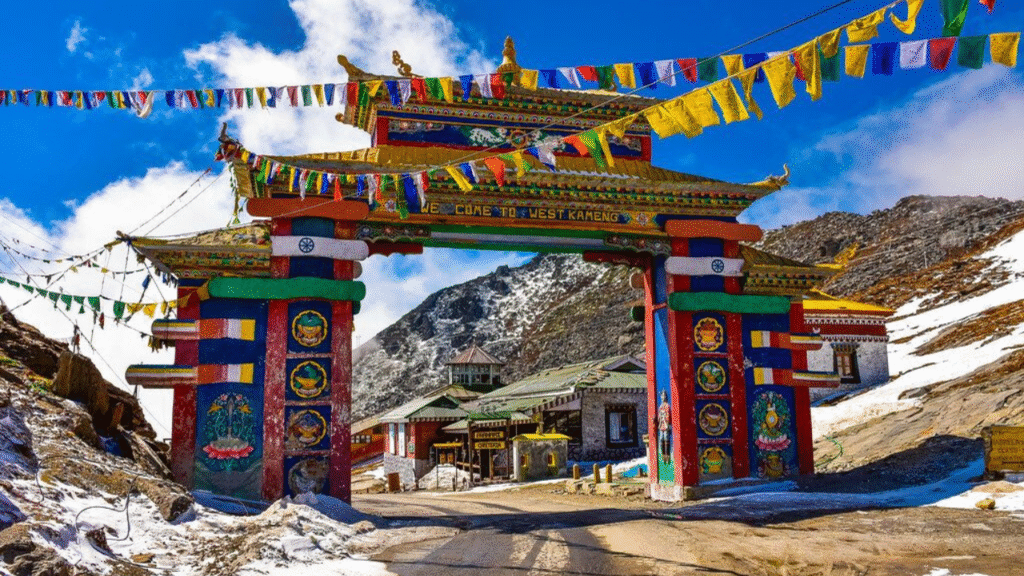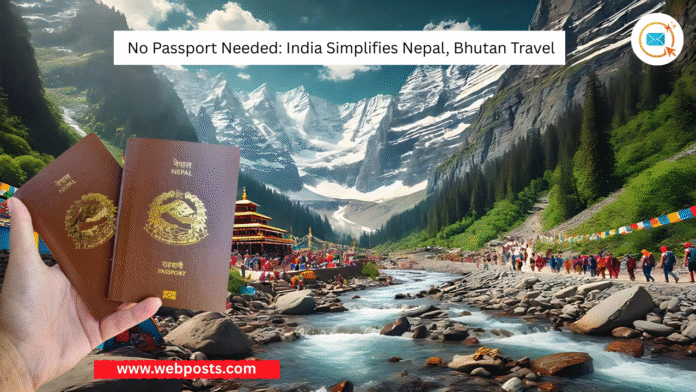India has long had good ties with its neighbors in the Himalayas, Nepal and Bhutan. Traveling across borders is now easier than ever. Recently, the Indian government said that anyone from India can go to these nations without a passport or visa. This shift is likely to improve links between people, cultures, and economies.
Connections from the past In between India, Nepal, and Bhutan
India and Nepal have a long history of working together. They share cultural traditions and have strong religious ties through temples and monasteries. For decades, they have had open borders. The most recent travel upgrade seems like a natural move toward stronger regional integration because of these linkages. According to reports from Outlook Traveller, the decision highlights India’s commitment to smooth regional movement.
India’s Easy Travel Rules
The new rule says that Indians, Nepalis, and Bhutanese can enter borders without a passport or visa.
• Voter ID card
• Aadhaar card
• Other government-issued IDs
This method makes travel easier while still requiring basic identification checks. Outlook Traveller said that the decision shows India’s dedication to making travel within the region easier.
A boost to trade and tourism
The No Passport regulation will help both trade and tourism:
• More tourists: It’s easier to get to Nepal’s trekking routes, Everest Base Camp, and Bhutan’s monasteries.
• Expansion of trade: Small firms and local traders can get to cross-border markets more quickly.
• Religious go: Pilgrims can now freely go to temples in India, Nepal, and Bhutan.
This strategy will probably bring in more visitors, which will boost business on all sides.
Benefits for People
There are several benefits to the easier travel process:
• Easy access with no paperwork.
• Less expensive travel because you don’t require a visa.
• Visits from family and student exchanges are easy.
• Quick migration across borders for career opportunities.
In the end, the No Passport rule makes it easier for regular people to move about and find better chances.

Strategic and Diplomatic Importance
India’s relationship with Nepal and Bhutan is very important to its diplomacy in the area. India is strengthening its “Neighbourhood First” policy by letting people travel without a passport.
• Making it easier for people to get in touch with one other.
• Helping SAARC and BIMSTEC work together.
India works to keep peace and stability clearly shown by theses strategies.
Things to think about and problems
This is good one but some problems are there which need to be solved:
• Safety Issues: There should be a balance between free mobility and identity checks.
• Problems with migration: There may need to be rules for moving jobs on a large scale.
• Border Management: People shouldn’t be able to do illegal things just because they can get in easily.
So, even if the No Passport policy is good, it needs to be watched all the time.
Tips for Indians Who Are Traveling Visiting Bhutan and Nepal
If you’re planning a trip soon, keep these ideas in mind:
- Bring a legal ID or Aadhaar card with you.
- Book places to stay early during times when there are a lot of tourists.
- Follow the habits and customs of the place you’re visiting. Eat and buy things made by people in that area. Check for any new rules before you go.
- In Nepal, people like to visit Kathmandu, Pokhara, and Mount Everest. In Bhutan, they like to visit Thimphu, Paro, and Punakha
The End
India’s choice to let people travel to Nepal and Bhutan without a passport is a big deal. It helps trade, encourages tourism, and makes it easy for regular people to travel. This choice shows more than just ease of transportation; it also shows cultural harmony and camaraderie between regions.
So, if you’re planning your next vacation, why not see the beautiful Himalayas in Nepal and Bhutan? You won’t need a passport at all.
For more useful guides, explore our Travel Blogs.






